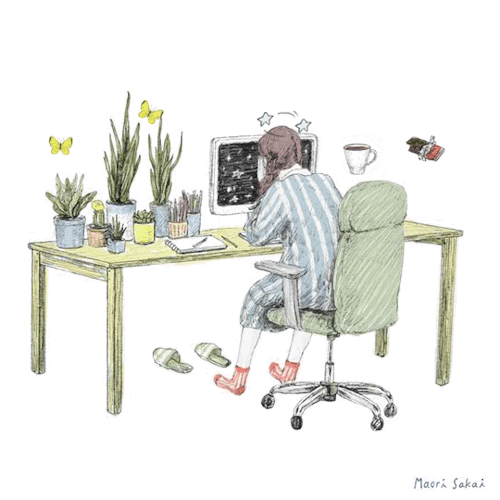5 Factors that Influence Your Level of Happiness

Our relationship with happiness is constantly changing throughout our lives. When we were little, our level of happiness probably depended on the relationship we had with our friends. Instead, as we got older, our happiness began to be more subject to our aspirations.
Our responsibilities change and increase, which increases the chance of feeling frustrated, as well as stressed and anxious when our work or the remuneration received is not to our liking. But, this is a general view of things, since for some people, their level of happiness depends on other types of situations.
An example would be people whose need to be in a relationship trumps everything else. If they don’t achieve this, or if the relationship turns sour, their happiness will lower. So, when our happiness is simply linked to the fulfillment of a desire, it is easier for us to suffer.
“Happiness doesn’t consist in living well and having an excellent quality of life, but rather in knowing how to live. It is common for people to finally understand this when life draws to a close.”
-Enrique Rojas-
But, what influences your level of happiness? Today we will discover 5 factors that have a powerful influence over us. Although, we need to point out that all of these aren’t all present at once. Sometimes, depending on the moment, one of them may become more important than the others.

1. Who you are and what you are like
Surely you were thinking about external factors that can influence you, but the most serious and least obvious ones reside within you. Your attitude towards life and how you deal with problems can influence your level of happiness.
Imagine that you are someone who always puts the blame on others for their own problems. In the end, you will think that the world is against you, and this won’t precisely make you happy. It is important for you to acquire the habit of being responsible for your actions.
Can we change who we are? Of course we can. By cultivating friendliness, patience, discovering which problems we can solve within ourselves… We can make ourselves better if we start treating ourselves and others well.
2. Where you live
Although you may not believe it, where you live influences your mood in an important way. The perfect place is one which makes you happy. It is one which satisfies your expectations and which transmits vibrations and positive emotions.
The big problem is that, sometimes, we can’t live where we want to live. Imagine that you have spent your childhood somewhere by the sea, but due to diverse circumstances, you had to move somewhere where the sea was very far away.

Though you may not think so, if the sea transmitted very positive sensations for you, being far from it will make you sad and influence your level your happiness. The freedom that you felt before -that peace- has now been substituted by anxiety and the feeling of being prisoner.
3. The level of your expectations
If you have had very strict and demanding parents or have experienced a complicated childhood, you might develop a perfectionist attitude. This way, when you cross a line, you will suffer more, the more perfectionist you are. A real anguish can be produced within you due to a missing comma, a slight wrinkle in a shirt or for being merely a minute late.
“Nothing is worth it if you are not happy.”
-Carlos Rentalo-
Nobody is perfect. In fact, perfect people are almost always sad, frustrated and stressed. They know that they can’t fulfill the expectations they set for themselves because, though you may not believe it, they are not realistic.
So that your level of happiness is satisfactory, you should adjust how demanding you are so that it is balanced. When you lower it, you’ll become aware that you can appreciate the most simple details. Details which you didn’t value before.
4. Interpersonal relationships
The position you have within your social group greatly affects your self-esteem. Thus, it is not the same to be married as to be divorced. Just like it is very different to have many friends than few, although this may depend a lot on your particular point of view.
If you cultivate healthy relationships, your level of happiness will be much higher. Unfortunately, we have had to deal with toxic people many times or with many situations which we have disliked. An example would be the previous one: a divorce.

As the social beings we are, relationships are of vital importance to us. Thus, they influence our level of happiness in such a way, because we can’t avoid experiencing disappointments, lies, abandonment…
5. Your thoughts and your level of happiness
Your thoughts are always going to determine your reality. Hence, although you may have a precarious job and salary, although your relationships may not be in their prime, what is really going to influence you is your way of dealing with these situations.
As we mentioned in the beginning, during certain stages of your life, your work and money may acquire a lot of importance and value. What happens if they aren’t are satisfactory as we thought? Isolating yourself into pessimism is the worst seed for negativity.
You choose if you want to be optimistic or pessimistic. But being optimistic is difficult, no matter how contradictory this may seem. Why are positive things always harder for us? Because it is always easier to complain and get angry than to do the opposite.
One learns to be happy when one understands that being sad is a waste of time.

Take this last factor that influences your level of happiness and thoughts and use it in your favor. Do you dislike a situation? Do you think the world is against you? Do you hate where you live? If you maintain a positive attitude and cultivate patience, you will manage to change all of these situations which are currently negatively influencing your level of happiness.
Our relationship with happiness is constantly changing throughout our lives. When we were little, our level of happiness probably depended on the relationship we had with our friends. Instead, as we got older, our happiness began to be more subject to our aspirations.
Our responsibilities change and increase, which increases the chance of feeling frustrated, as well as stressed and anxious when our work or the remuneration received is not to our liking. But, this is a general view of things, since for some people, their level of happiness depends on other types of situations.
An example would be people whose need to be in a relationship trumps everything else. If they don’t achieve this, or if the relationship turns sour, their happiness will lower. So, when our happiness is simply linked to the fulfillment of a desire, it is easier for us to suffer.
“Happiness doesn’t consist in living well and having an excellent quality of life, but rather in knowing how to live. It is common for people to finally understand this when life draws to a close.”
-Enrique Rojas-
But, what influences your level of happiness? Today we will discover 5 factors that have a powerful influence over us. Although, we need to point out that all of these aren’t all present at once. Sometimes, depending on the moment, one of them may become more important than the others.

1. Who you are and what you are like
Surely you were thinking about external factors that can influence you, but the most serious and least obvious ones reside within you. Your attitude towards life and how you deal with problems can influence your level of happiness.
Imagine that you are someone who always puts the blame on others for their own problems. In the end, you will think that the world is against you, and this won’t precisely make you happy. It is important for you to acquire the habit of being responsible for your actions.
Can we change who we are? Of course we can. By cultivating friendliness, patience, discovering which problems we can solve within ourselves… We can make ourselves better if we start treating ourselves and others well.
2. Where you live
Although you may not believe it, where you live influences your mood in an important way. The perfect place is one which makes you happy. It is one which satisfies your expectations and which transmits vibrations and positive emotions.
The big problem is that, sometimes, we can’t live where we want to live. Imagine that you have spent your childhood somewhere by the sea, but due to diverse circumstances, you had to move somewhere where the sea was very far away.

Though you may not think so, if the sea transmitted very positive sensations for you, being far from it will make you sad and influence your level your happiness. The freedom that you felt before -that peace- has now been substituted by anxiety and the feeling of being prisoner.
3. The level of your expectations
If you have had very strict and demanding parents or have experienced a complicated childhood, you might develop a perfectionist attitude. This way, when you cross a line, you will suffer more, the more perfectionist you are. A real anguish can be produced within you due to a missing comma, a slight wrinkle in a shirt or for being merely a minute late.
“Nothing is worth it if you are not happy.”
-Carlos Rentalo-
Nobody is perfect. In fact, perfect people are almost always sad, frustrated and stressed. They know that they can’t fulfill the expectations they set for themselves because, though you may not believe it, they are not realistic.
So that your level of happiness is satisfactory, you should adjust how demanding you are so that it is balanced. When you lower it, you’ll become aware that you can appreciate the most simple details. Details which you didn’t value before.
4. Interpersonal relationships
The position you have within your social group greatly affects your self-esteem. Thus, it is not the same to be married as to be divorced. Just like it is very different to have many friends than few, although this may depend a lot on your particular point of view.
If you cultivate healthy relationships, your level of happiness will be much higher. Unfortunately, we have had to deal with toxic people many times or with many situations which we have disliked. An example would be the previous one: a divorce.

As the social beings we are, relationships are of vital importance to us. Thus, they influence our level of happiness in such a way, because we can’t avoid experiencing disappointments, lies, abandonment…
5. Your thoughts and your level of happiness
Your thoughts are always going to determine your reality. Hence, although you may have a precarious job and salary, although your relationships may not be in their prime, what is really going to influence you is your way of dealing with these situations.
As we mentioned in the beginning, during certain stages of your life, your work and money may acquire a lot of importance and value. What happens if they aren’t are satisfactory as we thought? Isolating yourself into pessimism is the worst seed for negativity.
You choose if you want to be optimistic or pessimistic. But being optimistic is difficult, no matter how contradictory this may seem. Why are positive things always harder for us? Because it is always easier to complain and get angry than to do the opposite.
One learns to be happy when one understands that being sad is a waste of time.

Take this last factor that influences your level of happiness and thoughts and use it in your favor. Do you dislike a situation? Do you think the world is against you? Do you hate where you live? If you maintain a positive attitude and cultivate patience, you will manage to change all of these situations which are currently negatively influencing your level of happiness.
This text is provided for informational purposes only and does not replace consultation with a professional. If in doubt, consult your specialist.







